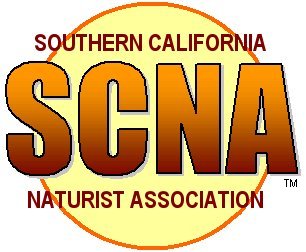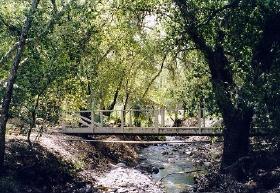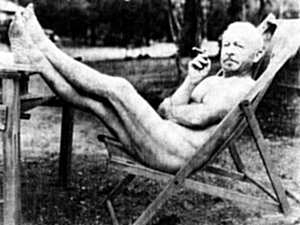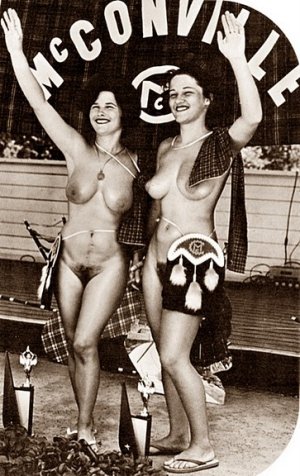03/04/2007 - Mystic Oaks survived raids, Peeping Toms and fires, but not a divorce. Never in her 80 years has Flora "Flo" Nilson felt so exposed. After spending most of her adult life buffing up the image of nudists, the owner of Orange County's only nudist resort and one of the longest-running such refuges in the West is calling it quits.
"It's time to move on," Nilson said. "For 53 years, it was quite a religious experience, chasing sunshine and health. Now it's over, and it's not easy."
For nearly three-quarters of a century, Mystic Oaks, formerly known as McConville, has nestled among towering oak, sycamore and pine trees off winding Ortega Highway between San Juan Capistrano and Lake Elsinore. Accessible only by an unmarked dirt road behind a padlocked gate, it is 2,500 feet up in the Cleveland National Forest. For generations, nudists have gathered here year-round, playing tennis, shuffleboard and volleyball; hiking; sunning and lounging around the pool. Hundreds have roughed it overnight in tiny, rustic cabins with no electricity.
The nudist camp, a peaceful, uninhibited setting, enabled the few hundred dues-paying members to relax with nature au naturel. Nudists paid annual fees of $400 to $600. But lately things have changed, Nilson said. "Most members were happy with our rustic retreat, but newer members wanted to change it into a country club-type setting. People don't enjoy camping out like they used to. They want all the amenities."
But after a long-drawn-out divorce, Nilson had no deep pockets with which to upgrade the site. Declining financial circumstances, coupled with dropping membership, caused her to give up the 129-acre property. The sale is pending.
In 1933, nudist camps were becoming popular in the United States. Psychotherapist Hobart Glassey, his wife, Lura, and a former New York grocer, Peter Joseph McConville, leased a piece of forested land they called Elysia. The next year, they bought 330 acres three miles uphill from the initial site and named it Olympic Fields.
Here, astride the border of Riverside and Orange counties, the founders battled neighbors and county officials. Peeping Toms and trespassers climbed the gate. Sometimes, 100 members fought off raids by sheriff's deputies bent on breaking up their naked volleyball games and barbecues, according to Times articles of the era.
A 1934, a 35-minute movie called "Elysia, Valley of the Nudes," was filmed in the naturists' paradise. Hobart Glassey appeared in it and was listed as a producer. The film was about a reporter named Mac who was sent to cover the habits of "primitive" people. Mac came to understand the camp and its benefits when he disrobed and joined in activities including baseball, leap-frog and horseshoes. By 1935, a financial rift had destroyed the partnership. The Glasseys, considered by some to be the founders of Western nudism, moved to Los Angeles County, creating a new nudist club in La Tuna Canyon in Sun Valley called Fraternity Elysia.
McConville stayed at Olympic Fields. He built a modest brick recreation hall in 1938, where members enjoyed community dances, potlucks, dominoes and card games. "Their dream," according to a camp newsletter charting the early days of the nudist camp, "was to assist people by providing a place where the pressures of our artificial civilization might be removed."
In 1938, McConville allowed Hollywood to use the resort for a second film, "Unashamed," starring Rae Kidd and Robert Stanley. The heroine entices her workaholic boss to a nudist camp in hopes of winning his heart, while members of the resort cavort in the buff. McConville plays the gatekeeper.
"Both 1930s movies are packed away now," Nilson said. "But we often showed them to members in the recreation hall." In April 1945, McConville helped to fight a bill by state Assemblyman Ralph Dills (D-Gardena) that would have outlawed public nudism. McConville and other members — fully dressed — drove to Sacramento to show the Assembly Crime and Corrections Committee they were just like other people. "Their faces aren't marked by debauchery or depravity," The Times reported.
Dills' bill was defeated in committee, 7 to 2. In 1952, Nilson's husband, Wally, a printer, made an intriguing proposal. "My husband had come home with a nudist magazine, tossed it down and said, 'How would you like to try something different?' " she said.They went for a weekend visit.
"I was nervous at first but found it so uplifting, the most natural thing in the world," Nilson said. "My mother, who was from Sweden, always said: 'If you haven't seen what God has shaped, let them stand and gape.' "In 1954, McConville, then 74 and ailing, sold the retreat to the Nilsons. They paid $7 an acre and renamed it in his honor.
"Naming it McConville made it sound like a little village, which it was," Nilson said. "McConville was a single man who [still] lived in a trailer on the grounds. I made him three meals a day, with spinach, which doctors said would help cure his cancer."
It didn't. He died in 1959 at 78.
After the Nilsons purchased the property, they boosted membership by putting in a pool, a bathhouse and tennis courts.
But sometimes nature seemed to conspire against them. Their first year, Nilson recalls, fire left the surrounding area as bare as the nudists. Women had to duck for cover when fire trucks rumbled through the property.
"One firefighter stared so hard, he almost fell from the back of the truck," Nilson recalled with a laugh. The mountain hamlet was a getaway for about 100 families, along with some couples and singles looking to escape from the pressures of urban life. "The park attracted a variety of people, from construction workers to attorneys," Nilson said.
Some members had attended as children, she said. Others visited with friends and liked it so much that they joined. "There were rarely ever more than 200 people here at a time," she said.
People liked to keep their membership a secret, knowing that their way of life could make colleagues or clients squirm. By shedding their clothing, Nilson said, they also shed such traits as pretense and fear.
The Nilsons managed the camp and reared three children there, driving them up and down the mountain to school in Lake Elsinore, seven miles each way. But life in paradise wasn't idyllic. Wally and Flo Nilson divorced in 1981, and she ran the club herself. In 1996, McConville was divided in the property settlement.
"I got about 129 acres … and spent years fighting off developers," Nilson said. Her former husband's portion is covered with houses today.
In 2000, Nilson renamed her land Mystic Oaks, changing it from a traditional all-nude park to "optional clothing" to attract younger families. "We wanted to make people feel more at ease in the beginning," she said.
But, over the last several years, fun- and sun-seekers stopped attending weekend events because they were too busy or were unwilling to drive on the twisting mountain road.
Nilson blames the club's demise on "lazy people who want to be waited on." She acknowledged that people changed but the club didn't: It remained a simple, no-frills outdoor camp.
Last week, Nilson — still a veteran nudist, weather permitting — was bundled up in a sweater and slacks as she hiked around her property for the last time. She recently moved to Sun City in Riverside County. Mystic Oaks is closed — as is the biggest chapter in her life.
The new owner, a member of the Buddhist community, will use the property as a church retreat.







